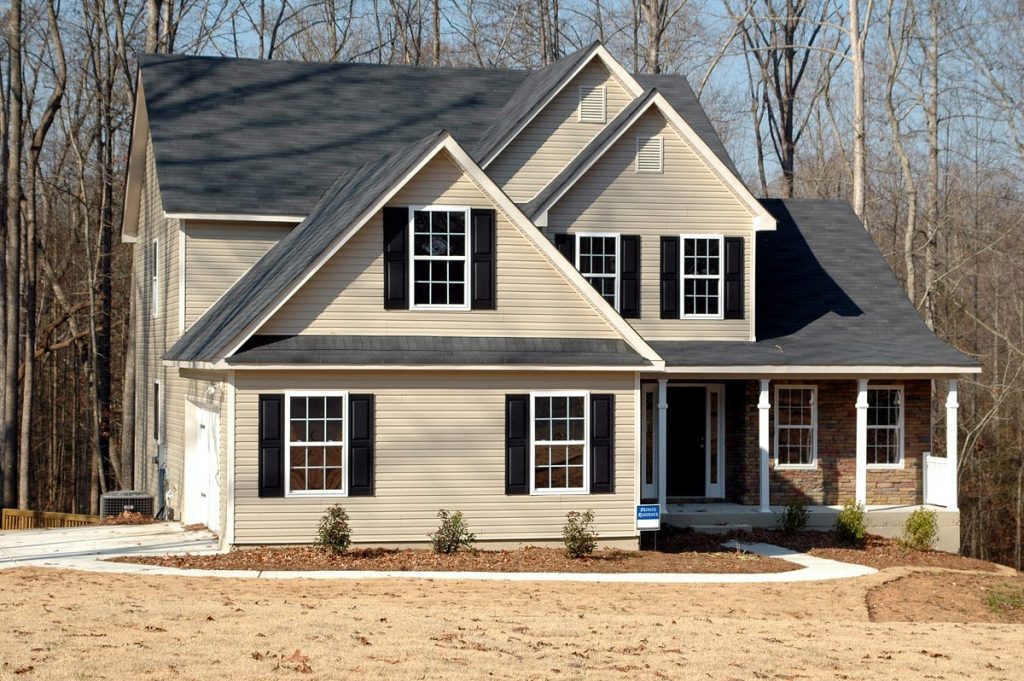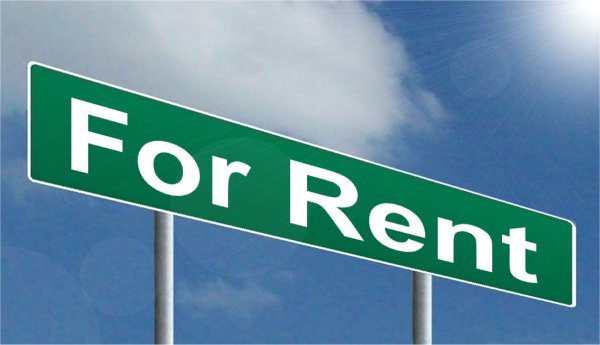
Table of Contents
Introduction: The Pros and Cons of Renting vs. Buying a Home in 2024
In 2024, it is possible to continue observing that one of the most important and vital decisions that people and families can make in the sphere of consumption is whether to rent or to buy a house. The current nature of the economic environment such as inflation rates, interest rates, and housing markets among others make such a decision harder at the current times. Be it for the first time, or for one considering change, such distinctions of renting and buying require a grasp of its advantages and disadvantages.

Advantages of Renting a Home
1. Most proponents of renting highlight flexibility and ability to move as one of its greatest strengths. They argued that occupants in particular are more mobile than home owners. This is especially useful for the people who change their residences often because of job or other related issues. When renting, there are no problems with life changes – for instance, one may be transferred in another city or may change his lifestyle.
2. Less capital outlay required at onset Renting does not necessarily entail a considerable amount of capital outlay at the start of the agreement. For the security deposit, and possibly the first and last months rent, these costs are generally lower than a down payment on a dwelling unit. Housing policy also favours renting more than owning, this can be attributed to the fact that renting is more affordable to people who have not saved enough to afford a home.
3. No Maintenance Responsibilities In renting, the overheads for maintenance and repair works are tenanted by the landlord. This can prove to be less costly as you will have foreseen all the outgoings that may be incurred for instance to repair a faulty furnace or to replace a leaking roof. The absence of such concerns might be of great value in this sense to people who do not want to deal with property management challenges.
4. Such expenses are easy to predict because the tenants’ monthly expenses normally do not vary. The rent is agreed with the landlord and is fixed; therefore, you will always pay this amount every month and not fluctuating costs like, taxes, insurance, and repairs that come with owning houses.
5. There is no Market Risk The renters do not feel the pinch of the current market prices of the buildings. One advantage of renting a home is that a renter is not exposed to fluctuations in the value of the home as either party can be; this makes renting to be more secure in the event of economic instabilities.

Duties and Disadvantages of Renting a Home
1. One of the greatest disadvantages of renting is therefore that it does not lead to equity. Housing costs are paid to the landlord thus are not an investment for the future. This in the long run leads to significant decline in wealth that could be obtained out of the investment as compared to real estate holding.
2. Little Autonomy is granted to the renters they have little say as to what they can do to the property. Essentially all leases do not allow major alterations in the property, and any alteration must generally be done with the consent of the landlord. This can be somewhat detrimental on your capabilities to make adjustments on your living space.
3. Risk of Rent Hikes Tenants can easily face this risk since their rent amount may be adjusted upwards in future depending on market forces. Monthly charges can be raised when a lease term is expires, this can put a lot of pressure on one’s pocket. There are some cases, as with the increase of rent prices, the tenant may be evicted as he or she cannot find the money for the rent.
4. No Tax Deductions Unlike the homeowners, the renters cannot claim benefits of tax deductions on owned property such as mortgage interest and property tax. Such deductions may sharply cut the cost of that home ownership, which makes renting unprofitable in the long run.
5. Therefore fixed housing can sometimes be perceived to be insecure in comparison to renting. In this case, landlords can take the property to the market, fail to renew the lease agreement, or charge astronomical fees for rent, thus compelling renters to relocat.

Advantages of Purchasing a House
1. There is equity accumulation Another advantage of homeownership is the chance to accumulate equity. When you are gradually paying for your mortgage you rise your ownership in the property. After some years the equity builds up to be quite an appreciable form of wealth which can be utilized for other investments, for retirement or even for emergencies.
2. Fixed Asset Ownership Homeownership leads to fixed as opposed to liquid asset ownership. A fixed rate of interest mean that the required monthly payments of the mortgage do not fluctuate over the years thereby making it easier to plan for. In addition to this, home ownership permanently puts one in a home, which is a feeling that is quite satisfying most probably to parents with young ones who are in the process of establishing a home.
3. Proximity to Appreciation Real estate assets have in the past have been known to appreciate over time, thus the investment might fetch more money at the end of the day. Although there is a risk of housing bubble, long term resident can watch prices rise and will reap big returns when they decide to sell.
4. There are also tax advantages of being a homeowner for instance tax deductions on interest charges on the mortgage and property tax. These deductions help in reducing the amount of taxable income hence friendly on the pocket when it comes to owning a home. Tax exemption for capital gains from sale of the primary home may also be applicable in some circumstances.
5. Freedom to Remodel A home can be altered as and when one wants because it is yours, this is freedom to remodel. Be it the kitchen or renovation, decks, or even the color of the walls, you are the one that decides on the changes you wish to make in your home. Well, the ability to make these changes and suit your home your needs can really make a big difference to the quality of your life.
Disadvantages of directly owning a home
1. Actual Costs worth pointing out is that, Real estate investment needs a high initial capital to kick start the process. Besides, the down payment there are closing costs and fees to be paid, moving expenses, and possible renovation. The above costs may be a major turnoff for many intending consumers.
2. The people who own homes know that home ownership comes with the responsibilities of maintaining and repairing the home. This could take some time and it is also expensive since you would have to cater for recurrent costs of maintenance and repair. Unlike operating under a rent, there are no landlords to deal with such problems on your behalf.
3. Market risk Real estates like any other investment, may gains value but it may also decline. There are cases whereby by the time you want to sell the house, its value will have depreciated in the market due to market fluctuations, health or other circumstances. This risk is especially a problem when you want to sell the property quickly.
4. Limited Mobility You are always fixed to a particular place of residence when you own a house, and hence the chances of transfer for job, family or other issues become difficult. It can be a long and drawn out process at times and is not always guaranteed to be done for a profit or even at a break even point.
5. Long Term Financial Burden A mortgage bears long-term financial burden where the housing loan can span for 15-30 years. This can be quite a challenge particularly during other periods of operating the business during economic instability. Mortgage defaulting results to foreclosure, which in turn was specified to have various financial and credit impacts.
Conclusion
Whether one should rent or buy a home in 2024 entirely depends on his or her financial status, preferable way of living and, further plans. Housing is beneficial to people in that it involves no initial payment, low costs since one does not pay for maintenance and it provides flexibility and mobility which is essential to those who move around from place to the other frequently. However, there are also disadvantages – namely that there is no equity building going on and the future seems relatively unstable.
At the same time, you own a home that steadily gains in value, you also qualify for tax deductions, and you are in full control of your housing. However, due to initial investments, liability of maintenance, and market positioning it becomes a substantial venture.
In the end, there are no ready-made solutions. Taking into account the situation in your life and in the housing market, you will be able to make the right decision for the future.
FAQ’s on The Pros and Cons of Renting vs. Buying a Home in 2024:
1. What are the main advantages of renting a home in 2024?
Renting offers flexibility, lower upfront costs, no maintenance responsibilities, predictable monthly expenses, and protection from market risks. These benefits make it appealing for people who prioritize mobility or are not ready for the long-term commitment of homeownership.
2. What are the main disadvantages of renting a home in 2024?
The primary downsides of renting include not building equity, limited control over the property, the potential for rent increases, no tax benefits, and possible instability in living arrangements due to landlord decisions.
3. What are the benefits of buying a home in 2024?
Buying a home allows you to build equity, provides long-term stability, offers potential for property appreciation, provides tax benefits, and gives you full control over your living space.
4. What are the disadvantages of buying a home in 2024?
Disadvantages include high upfront costs, maintenance and repair responsibilities, market risk, less flexibility to move, and a long-term financial commitment.
5. How does the current housing market affect the decision to rent or buy?
In 2024, factors like interest rates, housing prices, and economic conditions can influence whether renting or buying is more advantageous. High home prices and interest rates might make renting more appealing, while favorable market conditions could make buying a better investment.
6. Is renting cheaper than buying a home in 2024?
Renting can be cheaper in the short term due to lower monthly payments and no maintenance costs. However, buying might be more cost-effective in the long run if the property appreciates and you build equity.
7. How does inflation impact the decision to rent or buy?
Inflation can increase both rent and home prices. However, if you have a fixed-rate mortgage, homeownership can act as a hedge against inflation since your monthly payments remain the same.
8. Are there tax benefits to renting a home?
No, renters do not receive tax benefits related to their housing costs. Homeowners, on the other hand, may deduct mortgage interest and property taxes from their taxable income.
9. What is the significance of building equity when buying a home?
Building equity means increasing your ownership stake in the property over time. This equity can be a valuable financial asset that can be borrowed against or used as a down payment on a future home.
10. What are the risks of buying a home in an uncertain market?
Market risks include the potential for your property’s value to decrease, which could result in negative equity. Selling a home in a downturn could also mean taking a loss on your investment.
11. How does the long-term commitment of a mortgage affect homeownership?
A mortgage is a long-term financial obligation, often lasting 15 to 30 years. Missing payments can lead to foreclosure, making it essential to have a stable income and financial plan.
12. Can renting offer more financial flexibility than buying?
Yes, renting often requires less financial commitment, allowing more flexibility in budgeting for other goals like travel, education, or saving for retirement.
13. What role does lifestyle play in deciding to rent or buy?
Lifestyle factors, such as the need for flexibility, the desire to settle down, or personal preferences for home customization, play a crucial role in the rent vs. buy decision.
14. How does homeownership contribute to financial stability?
Homeownership can provide financial stability through equity building and potential appreciation. It also offers predictable housing costs with a fixed-rate mortgage, unlike renting, where rent can increase over time.
15. What are the potential long-term financial benefits of buying a home?
Long-term benefits include equity growth, potential appreciation, and the ability to eventually own the property outright, eliminating monthly housing costs except for taxes and maintenance.
16. How do property taxes affect the cost of homeownership?
Property taxes are an ongoing expense that homeowners must budget for. These taxes can vary significantly depending on the location and the value of the home.
17. Can renting be more advantageous for short-term living?
Yes, renting is often more advantageous for short-term living due to lower upfront costs, flexibility to move, and no need to worry about selling a home in a short timeframe.
18. How does the potential for rent increases impact long-term renting?
Long-term renters may face significant rent increases, which can outpace wage growth and make renting less affordable over time.
19. What are the benefits of homeownership for families?
Homeownership provides stability, the ability to customize the home, and often access to better school districts and community resources, making it attractive for families.
20. Is it harder to qualify for a mortgage in 2024?
Mortgage qualification criteria can be stringent, requiring good credit, stable income, and a substantial down payment. Changes in economic conditions may also affect mortgage availability.
21. How does renting provide protection from housing market downturns?
Renters are not directly affected by decreases in property values. They can move without worrying about selling a property at a loss if the market declines.
22. What are the implications of maintenance costs for homeowners?
Homeowners are responsible for all maintenance and repairs, which can be costly and time-consuming. These expenses need to be factored into the overall cost of homeownership.
23. Can homeownership be a good investment in 2024?
Homeownership can be a good investment if the property appreciates, you build significant equity, and you plan to stay in the home long enough to offset the upfront costs.
24. How does renting affect long-term financial planning?
Renting may limit long-term wealth building since it does not involve equity accumulation. Renters need to find other ways to invest and save for the future.
25. What should I consider when deciding to rent or buy in 2024?
Consider your financial situation, long-term goals, market conditions, lifestyle preferences, and the stability of your income. Evaluate both the immediate costs and potential long-term benefits before making a decision.
Also visit:-



